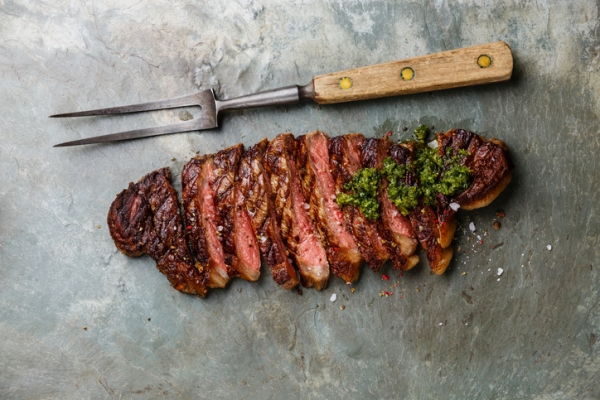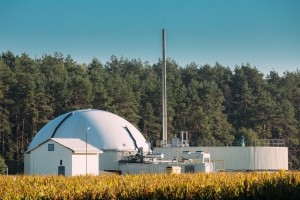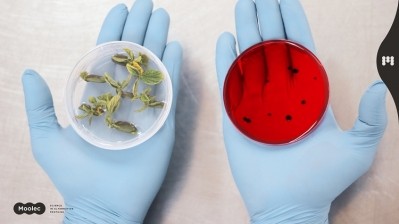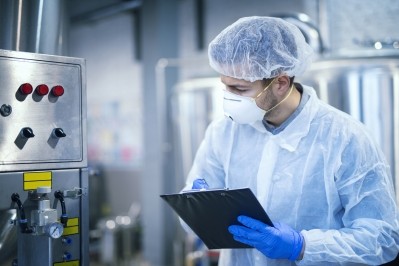Big Idea Ventures talks future proteins: From clean meat to bio-fermentation and plant-based

Animal agriculture is highly resource intensive. Beef, for instance, uses 20 times more land and generates 20 times more greenhouse gas emissions per gram of edible protein than plant protein, World Resources Institute (WRI) calculations suggest.
FAO data reveals animal agriculture currently generates 14.5% of global greenhouse gas emissions. And demand is rising.
Food production will need to increase by around 60% to meet the nutritional needs of the growing global population, forecast to reach 9.7bn people by 2050, according to estimates from the WRI.
At the same time, concerns over the animal welfare implications of intensive farming systems and the health benefits associated with increasing consumption of plant-based foods are also pushing consumers towards new protein sources.
“Climate change, animal welfare and personal health will be improved if we add more plant-based and cell-based protein sources to our diets and food production,” Big Idea Ventures (BIV) Managing Partner Andrew Ive told FoodNavigator.
Ive stressed that recent events – the spread of Swine Fever and the coronavirus pandemic – have demonstrated the fragility of the current food system. “Global pandemics such as the COVID-19 and African Swine Fever, have exposed the vulnerability of our food supply chains. We must expand our protein sources,” he argued.
BIV launched the US$50m New Protein Fund in order to support entrepreneurs that are working to tackle the protein challenge and contribute to the emergence of this ‘new food space’.
The US-based VC runs four accelerator programmes per year in New York and Singapore and works with investment partners including Bühler, Tyson Ventures and Temasek, among others.
The investment vehicle unveiled its second cohort of seed and growth-stage companies this week.
Plant protein: Still runway for growth
The global plant-based meat market was valued at $12.1 billion in 2019 and is predicted to grow at a CAGR of 15% to reach almost $28 billion by 2025, research firm Markets and Markets forecasts.
The plant-based boom has attracted a lot of excitement, resulting in high levels of innovation and intense competition to secure shelf space.
Large corporates have invested heavily in their plant-based R&D capabilities. According to research from the FAIRR Investor Network, around 40% of leading corporates now have dedicated plant-based innovation teams.
But Ive does not view intensifying competition as cause for concern to plant-based start-ups and their investors.
“We are still at the first stages of an entirely new category in food. Ten years ago, plant-based food was tofu and very basic products designed for the smallest sub-sector of consumers. It was a small range of foods available in the less travelled parts of the food store, the packaging almost had dust settle on them.
“Today, plant-based meat, seafood and dairy companies are some of the most creative companies in the entire food industry. Every product in the grocery store which includes an animal protein as a primary or secondary ingredient is entirely replaceable by entrepreneurs bringing creativity and imagination with new ingredients and manufacturing techniques.”
There is certainly still space for newcomers, Ive enthused. “We have only seen a few brands in the plant-based meat, seafood and dairy category - most other food categories have hundreds of brands and products... There is still significant opportunity for new plant-based products, brands and innovations across so many sectors in the grocery store. And that’s before you get into the international and global opportunities to fulfil consumer demand for culturally relevant plant-based foods.”
BIV’s latest investment round reflects this investment thesis. The second cohort, in New York and Singapore, counts six plant-based innovators among its number: China’s Zhenmeat; Filipino group WTH Foods; Australian Fenn Foods; and US start-ups Actual Veggies, Wild For and Yoconut Dairy Free.
“Our investment in Evo Foods in India, Zhenmeat in China and WTH Foods in the Philippines has helped show the value of localising products and growing new brands versus more traditional meat industries in the respective geographies.”
Ive believes that plant-based products with culinary flair could prove an important innovation driver. “We are very proud of our founders from Fenn Foods, an Australian-based plant-based meat company that is led by Alejandro Cancino, who is an internationally renowned and award-winning chef, who has secured three hats. Along with the team at Actual Veggies, a New York-based plant-based company, who are utilising their culinary expertise to create excellent tasting plant-based SKUs that are comparable to actual meat.”
Outside the meat space, BIV sees opportunity for dairy and egg replacers: Evo produces plant-based egg alternatives and Yoconut creates a live-cultured yoghurt from coconuts.
“We also look at wellness foods, where we have Aleem from Wild For who is helping active families eat healthier through a line of high-protein low-fat, gluten-free chips based on the ancient grain superfood, teff.”
Cell-based meat and microbial fermentation
“Big Idea Ventures is really interested in is the cell-based space. We believe that in the longer term cell-based is one of the best technologies to deliver a sustainable source of protein,” Ive revealed.
Cell-based agriculture sees a sample of cells taken from a live animal and put into a bioreactor. Inside the tank, the cells are fed a growth medium - a nutrient-rich soup that enables them to grow and divide. These are developed into muscle and fat cells through a process called 'differentiation'. Standard food processing technologies are then used to form the final product – meat.
The new cohort includes five cell-based meat companies: Gaia; Peace of Meat; Novel Farms Inc; Orbillion Bio; and Biftek.co.
Significantly, BIV has chosen to invest in companies from across the clean-meat value chain. “It is not only about the product, but the whole production and supply chain process,” Ive explained.
“These companies not only focus on producing the actual meat, but also the raw materials required to make cell-based a commercially viable food technology. We have Biftek.co and Gaia Foods, who are innovating, producing and licensing their growth media to replace fetal-bovine-serum. Novel Farms Inc is serving the next generation of exquisite meat, specifically Jamon Ibérico, by using affordable, cruelty-free, and tunable 3D scaffolds. Orbilion, is sourcing heritage cell-lines from farmers to create their premium heirloom meat snacks."
The development of this kind of ecosystem is necessary if clean meat is to overcome some of the hurdles on its route to market: affordability, scale and supply chain.
Ive remained fairly bullish on the go-to-market timetable – but noted regulatory approval will likely mean the sector will open up at different rates internationally.
“Big Idea Ventures believes cell-based companies will achieve commercial scale within the next 2 to 3 years. We believe Asia will be the first region to approve cell-based meat as generally recognised as safe for human consumption (GRAS). Unfortunately for the United States, a leader in this category, we believe it will be sometime before the US approves cell-based for human consumption. In this case the US will follow Asia.
“Big Idea Ventures is working very closely with the Singapore Food Agency (SFA), Gaia Foods and our other cell-based portfolio companies on the regulatory standards of clean meat in Singapore.”
A related tech development that Ive expects to have a big global impact is microbial fermentation.
“We’re looking at ingredients that can be produced using microbial fermentation methods. For example we’ve got a company called MeliBio using this to produce honey without bees. The first completely vegan honey in the world.
“It’s important to understand honey isn’t just a B2C product, it’s an ingredient that’s used in cosmetics, skincare, food… so having a bio-fermentation process to develop quality honey is fundamentally impactful on a multi-billion dollar industry around the world.
“In the same way, we’re interested in collagen and gelatine and other ingredients that are currently manufactured from animals but can be developed using other technologies. Cell-based seafood is also really exciting, for example Big Idea Ventures was a very early investor in the amazing team at Shiok Meats.”
Investing for impact: That ‘hair raising’ moment
So what does BIV look for in an investment case?
“We call ourselves Big Idea Ventures because we are looking for companies with a vision to make a global impact,” Ive noted.
Technical and scientific expertise is important, particularly in the alternative protein industry. And the founding team itself needs to impress, the investment expert tells us.
“When you start a company, it’s not always going to be fun. Sometimes it’s tough and stressful… We look for team members who are committed, who are going to grind through the challenges, and who have a passion for what they’re doing.”
When all these factors align, Ive said there is a ‘hair raising moment’ where the BIV team realise ‘how big of an impact’ the business could make.
“That ‘a-ha’ moment tells you there’s something pretty special here. It doesn’t happen often, but often enough to choose a great cohort every six months from around the world.”




























